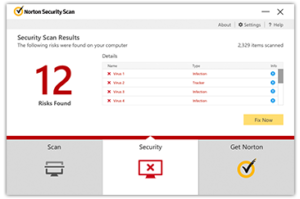How to protect yourself against cybercrimes
Cybercrime is any crime that takes place online or primarily online. Cybercriminals often commit crimes by targeting computer networks or devices. Cybercrime can range from security breaches to identity theft.
Other cybercrimes include things like “revenge porn,” cyber-stalking, harassment, bullying, and child sexual exploitation.
Terrorists collaborate on the internet, moving terrorist activities and crimes into cyberspace.
What is cybercrime?

In the age of technology, when innovative services are always available, it is important to exercise caution in using such services to protect against cyber fraud. One of the most widespread forms of cyber fraud is phishing, which aims to obtain customer banking data fraudulently and conduct unauthorized financial transactions through remote channels.
In a similar attack, cyber fraudsters may use:
The message sent by cyber criminals typically looks like a message from a trusted source, including a bank, or any other organization or private individual whom you may be in communication with. The message often contains a link to a website having visual appearance similar to the existing one.
When receiving an e-mail asking you to go to a link or open a file, carefully read the message and check the sender; never trust messages requiring you to take actions promptly or provide and/or confirm personal or banking information (e.g.: card number, user password, authorization code).
Cybercriminals also use fraudulent schemes via mobile phones/calls. Fraudsters may contact you on behalf of a bank or a familiar organization/person and may request confidential information (card number, user password or authorization code) during a telephone conversation to conduct an unauthorized financial transaction usually along with talking to you.
How to protect yourself against cybercrime
Anyone using the internet should exercise some basic precautions. Here are 11 tips you can use to help protect yourself against the range of cybercrimes out there.
1. Use a full-service internet security suite
For instance, Norton Security provides real-time protection against existing and emerging malware including ransomware and viruses, and helps protect your private and financial information when you go online.
2. Use strong passwords
Don’t repeat your passwords on different sites, and change your passwords regularly. Make them complex. That means using a combination of at least 10 letters, numbers, and symbols. A password management application can help you to keep your passwords locked down.
3. Keep your software updated
This is especially important with your operating systems and internet security software. Cybercriminals frequently use known exploits, or flaws, in your software to gain access to your system. Patching those exploits and flaws can make it less likely that you’ll become a cybercrime target.

5. Strengthen your home network
It’s a good idea to start with a strong encryption password as well as a virtual private network. A VPN will encrypt all traffic leaving your devices until it arrives at its destination. If cybercriminals do manage to hack your communication line, they won’t intercept anything but encrypted data. It’s a good idea to use a VPN whenever you a public Wi-Fi network, whether it’s in a library, café, hotel, or airport.
6. Talk to your children about the internet
You can teach your kids about acceptable use of the internet without shutting down communication channels. Make sure they know that they can come to you if they’re experiencing any kind of online harassment, stalking, or bullying.
7. Keep up to date on major security breaches
If you do business with a merchant or have an account on a website that’s been impacted by a security breach, find out what information the hackers accessed and change your password immediately.
8. Take measures to help protect yourself against identity theft
Identity theft occurs when someone wrongfully obtains your personal data in a way that involves fraud or deception, typically for economic gain. How? You might be tricked into giving personal information over the internet, for instance, or a thief might steal your mail to access account information. That’s why it’s important to guard your personal data. A VPN — short for virtual private network — can also help to protect the data you send and receive online, especially when accessing the internet on public Wi-Fi.
9. Know that identity theft can happen anywhere
It’s smart to know how to protect your identity even when traveling. There are a lot of things you can do to help keep criminals from getting your private information on the road. These include keeping your travel plans off social media and being using a VPN when accessing the internet over your hotel’s Wi-Fi network.
10. Keep an eye on the kids
Just like you’ll want to talk to your kids about the internet, you’ll also want to help protect them against identity theft. Identity thieves often target children because their Social Security number and credit histories frequently represent a clean slate. You can help guard against identity theft by being careful when sharing your child’s personal information. It’s also smart to know what to look for that might suggest your child’s identity has been compromised.
11. Know what to do if you become a victim
If you believe that you’ve become a victim of a cybercrime, you need to alert the local police and, in some cases, the FBI and the Federal Trade Commission. This is important even if the crime seems minor. Your report may assist authorities in their investigations or may help to thwart criminals from taking advantage of other people in the future. If you think cybercriminals have stolen your identity. These are among the steps you should consider.
- Contact the companies and banks where you know fraud occurred.
- Place fraud alerts and get your credit reports.
- Report identity theft to the FTC.
Security Scanning with Norton Security

Norton Security Scan is a software tool designed to help you understand if your computer is currently protected from known threats. Norton Security Scan performs a scan of your computer and displays if there are existing viruses, worms, spyware, unwanted adware, or Trojans residing on your computer.
Norton Security Scan does not conflict with other applications and other security software installed on your computer.
Source: Norton
#Cybercrime is any #crime that takes place online or #primarily #online. #Cybercriminals often commit #crimes by targeting computer #networks or devices. #Cybercrimes can range from #securitybreaches to #identity #theft. Share on X
How to Protect Yourself from cyber criminals
When asking yourself “what is cybercrime?” it is crucial to note that it comes in many forms that you might not expect. The most important step to keep in mind when using the Internet is that you should never open emails that look suspicious. If a contest or offer seems too good to be true, chances are it probably is. Just as if you would avoid shady areas in the real world, it is crucial to avoid high-risk areas on the Internet when possible.
While common sense can help protect you from most Internet threats, it still is vital to install virus protection software onto your computer because it can help block malware from sources you don’t expect. As antivirus software is built and maintained by world-class security firms dedicated to protecting consumers and businesses from most types of cybercrime, using virus protection is one of the easiest and most cost-effective ways to improve your security.
Spam Email Prevention
In addition to protection against malware, you also should be alert for spam and phishing emails that attempt to steal your identity. Spam emails pose a threat to consumers because they’re commonly laden with malware or, in many cases, they lead victims to malicious websites designed to scam individuals. Typical spam messages include off-shore pharmaceutical ads, pump-and-dump stock schemes and general unsolicited advertising. These emails lead the unwary to fake sites, which then usually include “notifications” about their accounts being at risk or needing updates. A simple click on these notifications will compromise your computer’s security.
Phishing Prevention
Phishing is another common type of cybercrime. Victims receive an email — usually appearing to be from a bank or a financial institution — saying the victim’s account is in jeopardy and that he or she must “confirm” some details to save the account. The emails contain links that appear to go to the proper financial site, however they actually go to the criminals’ servers, where they steal your account credentials. As a rule of thumb, it is best to never click links in emails to get to a website. Instead, if you get a notice from a company, you can open your browser and type the website name directly into the address bar. If it turns out your account is OK, you can then call or email the company to report the phishing message.
Cybercrime Protection
To protect yourself from these threats along with malware, it is crucial to have a comprehensive Internet security suite installed on your system. Key features of Internet security suites include virus protection, spam filters, parental controls and many other safeguards to protect against all types of cybercrime. One of the most important features of such suites is cloud based security protection which ensures that when browsing the web, if you visit a malicious website, it will be blocked before you become a victim. Additionally safe banking software included with many suites adds an additional layer of protection by ensuring that when you visit a banking website, it actually is the legitimate entity.
How to Protect Yourself from Cyber Crime

– Don’t click on unfamiliar links (antiviral messages, strange emails, etc.)
– Don’t download unfamiliar software
– Never give out personal information unless it’s a trusted source
– Install a firewall
– Perform software updates
– Change and vary your passwords
– Avoid public, open wi-fi
– Keep important information off the cloud – Backup your data

I am Nikita Bobrov and have been running this blog about Schufa and finances since 2009.
After completing my Master’s in Business Administration and additionally a B.Sc. in Computer Science, I made several moves between completely different countries and settled in Germany.
Germany is a country with complex legislation and a special love for paperwork and bureaucracy.
On the pages of this blog, the authors: Schufa Guide: Tips & Tricks, try to help you understand the document system in Germany and make life easier for ordinary people.
If we could help you, share useful information (e.g. displaying calendar weeks in Windows) with your friends on social networks, and perhaps they will thank you too!
